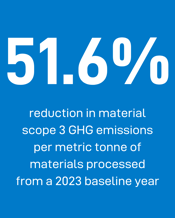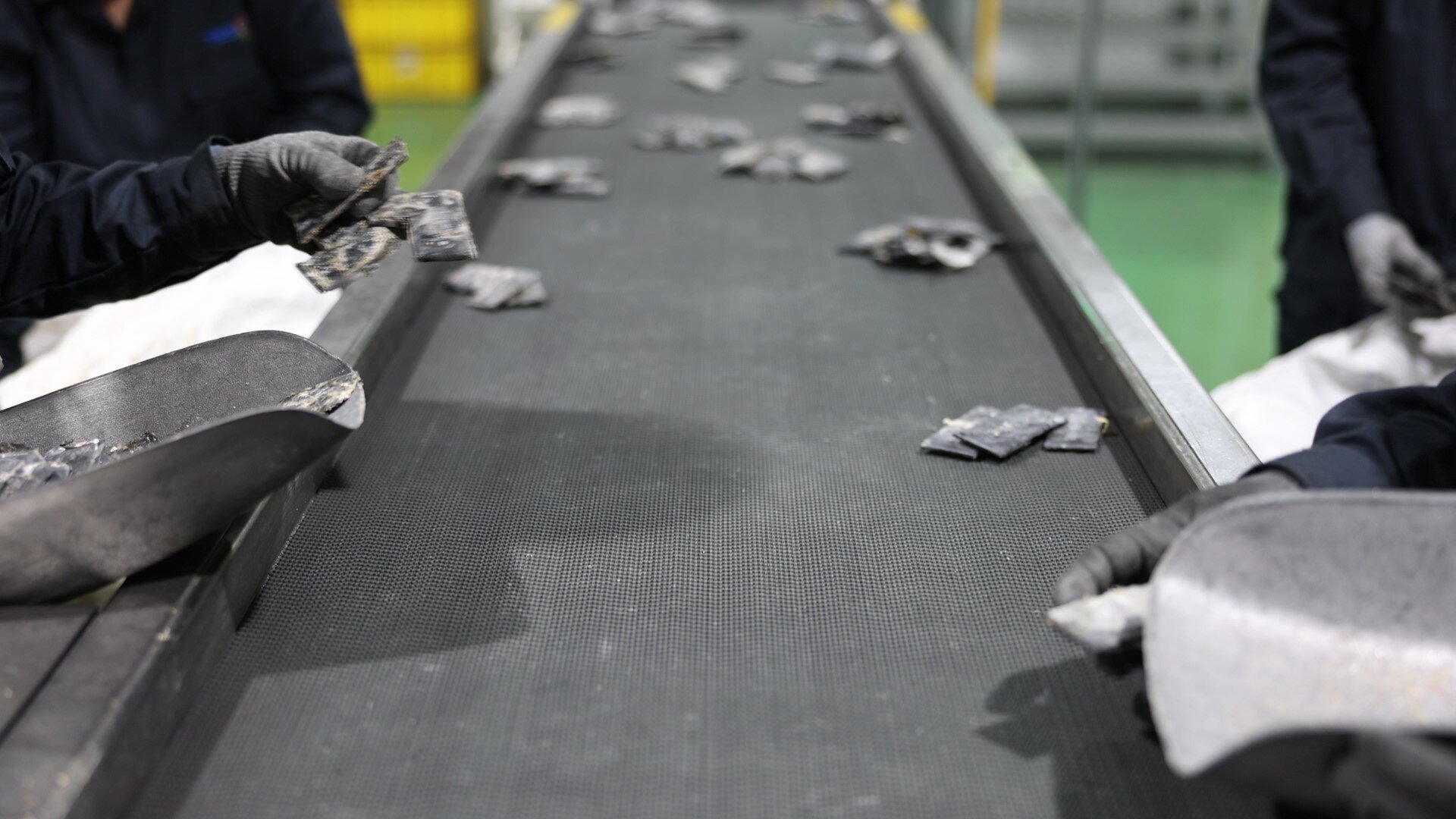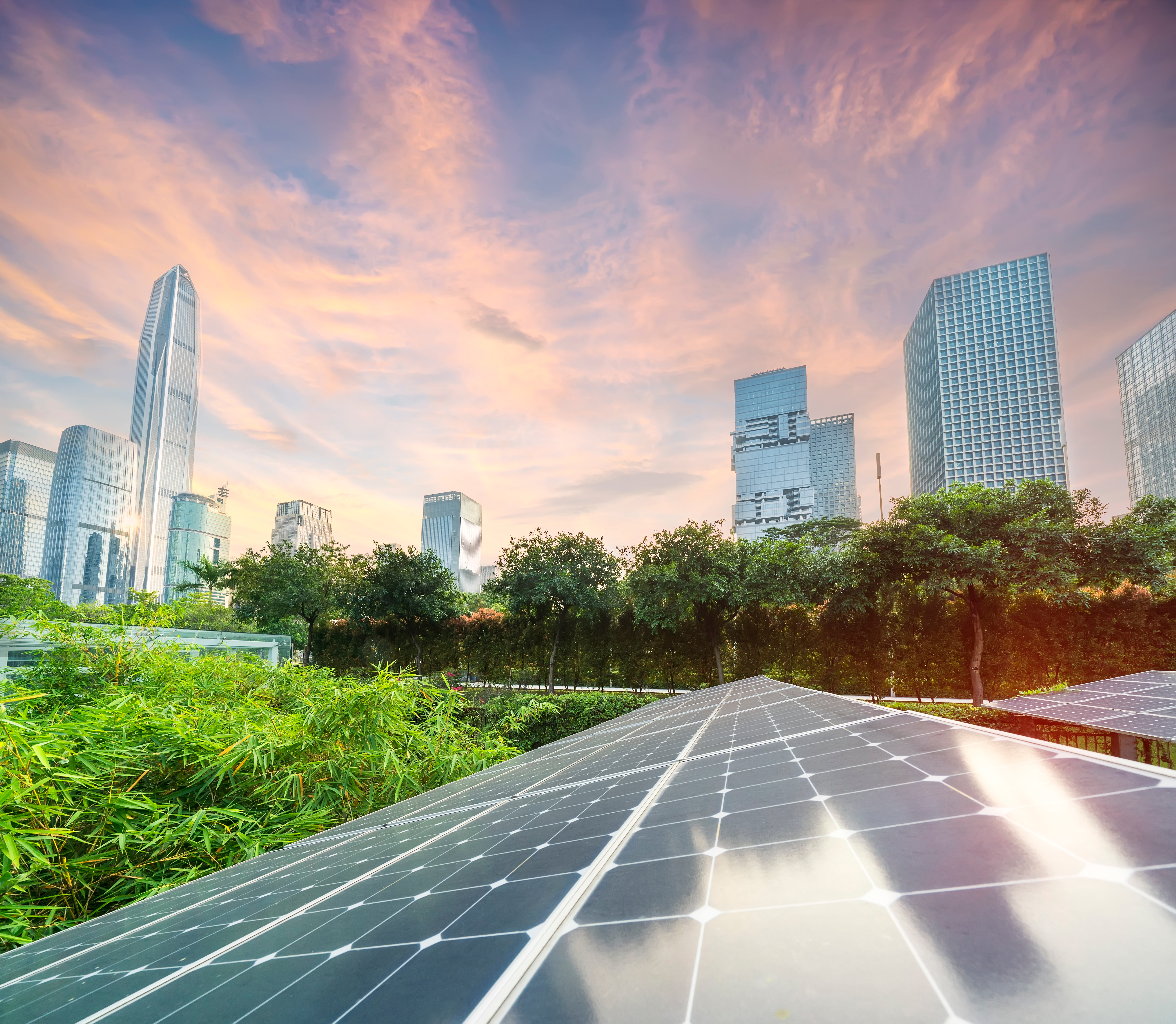Climate change is a major issue affecting all of us. To prevent the most severe consequences of climate change, it is necessary for businesses, governments, and society to collaborate on making a just transition toward a net zero economy by 2050.
At SK tes, we are committed to Sustaining Tomorrow because we believe that our future is linked to the success of people and of our planet. In our latest Sustainability Report, we are pleased to announce our commitment to achieving net zero and to explain why we feel it is important to make a public net zero commitment.
The Intergovernmental Panel on Climate Change (IPCC) set the objective of achieving net zero emissions by 2050, which is crucial to limit global warming to a maximum of 1.5 °C and avoid the most severe consequences of climate change. The IPCC is the United Nations body for assessing the scientific aspects of climate change. If global warming exceeds 1.5 °C above preindustrial levels, future climate change–related risks are expected to be even greater.
At SK tes, we recognize that we have a role to play in promoting change, and we are dedicated to leading by example. We have made a global commitment to achieving net zero greenhouse gas (GHG) emissions and have set science-based near-term goals for ourselves. This means that we are committed to reducing our emissions and ensuring that our future business growth is decoupled from our emissions.
Furthermore, we know that our clients also have net zero goals, and we are supporting them in their ambition to reduce their climate impact by contributing to their GHG emissions reduction objectives. According to Net Zero Tracker, by June 2023, almost two-thirds of the annual revenue of the world’s largest companies was covered by a net zero target.
Net zero is increasingly becoming a mainstream issue on corporate agendas, with 929 of the Forbes 2000 companies now implementing net zero targets and action plans. Thanks to our global presence, we deliver advanced IT asset disposition (ITAD) services throughout the world, and, therefore, have a vital role to play in the technology industry’s transition to a net zero economy.
SK tes Commitment to Net Zero
 .
. 
Through these measures, SK tes aims to continue its commitment to sustainable practices and reduce its environmental impact while maintaining high standards of service for our clients. By hitting our net zero targets, we will also help our clients achieve their goals. As ITAD partners, we form part of our clients’ Scope 3 emissions, which means that our business activities also contribute to their overall carbon footprint. By taking action to operate with the lowest possible carbon footprint, SK tes helps our clients deliver on their net zero ambitions.
A key aspect of SK tes’s strategy for achieving this goal is increasing our use of renewable energy sources, such as solar photovoltaic panels and stationary energy storage projects at our Singapore and Thailand sites. Renewable energy sources such as solar, wind, hydro, and geothermal power are essential for meeting net zero commitments because they generate lower greenhouse gas emissions, do not deplete natural resources, and are often cheaper than fossil fuels in many parts of the world.
To further encourage efforts to reduce emissions and waste, SK tes plans to implement rewards and incentives for members of our management team who meet our targets for reducing emissions and waste in our processes. Energy and waste audits will also be conducted to identify opportunities for energy efficiency and waste reduction, which are expected to result in the implementation of energy efficiency initiatives, upgrades in facilities and operations processes, and the enhancement of waste management systems.
Our goals include reducing our Scope 3 emissions, which are emissions derived from indirect operations. This is a significant goal, given the scale of effort required to capture emissions of this type. SK tes first reported on Scope 3 emissions in our 2022 report, which reflected the considerable effort made to capture emissions of this type. Our deep dive into Scope 3 emissions will review purchasing and capital investment processes, as well as downstream vendor management. We will proactively engage with suppliers, business partners, buyers, and vendors to calculate emissions and initiate programs to reduce downstream emissions.
While energy transition is an important aspect of most organizations’ goals, focusing solely on energy sources is unlikely to be enough. Research from the Ellen MacArthur Foundation attributes 45% of global emissions to the production, use, and disposal of products and services. Tackling this will be a vital part of the transition to net zero. A fundamental shift to circular economy principles will be required to reduce emissions.
The responsible use of resources and materials can also play a crucial role in achieving net zero emissions. The production of key materials used to produce workplace and data center technology assets is responsible for a significant proportion of global CO2 emissions, including steel (8%), plastics (4.5%), and aluminum (3%). The adoption of circular economy principles can reduce the demand for industrial materials.
Driving for maximum circularity in technology use and optimizing the use, reuse, and recycling of your IT assets will reduce waste and minimize the need for emissions-heavy production of new materials. The benefits are clear: By reducing reliance on new industrial materials and including a materials transition in our net zero implementation plans, we can move collectively toward a more responsible circular economy.
At SK tes, we provide IT asset disposition (ITAD) services across 100 countries worldwide. We are dedicated to extending the lifecycles of our clients’ technology assets. We maximize resource use, avoiding the need to produce or purchase new equipment and thus avoiding the associated emissions. We work with a diverse range of clients, from original equipment manufacturers (OEMs) to blue-chip companies, hyperscale cloud providers, and electric vehicle manufacturers.
Our mission is to make a difference by securely, safely, and sustainably repurposing 1 billion kg of assets by 2030. We are committed to keeping assets and resources in use, a principle that is at the core of the circular economy. Our technology remarketing and recycling services facilitate closed-loop material use and the regeneration of the environment. We strive to find higher-value end-use applications for hard-to-recycle and low-value materials. This approach increases reuse and recovery possibilities and minimizes the pressure on natural resources.
To find out more about our sustainability objectives and how SK tes can contribute to achieving your organization’s net zero objectives, please download our Sustainability Report.






